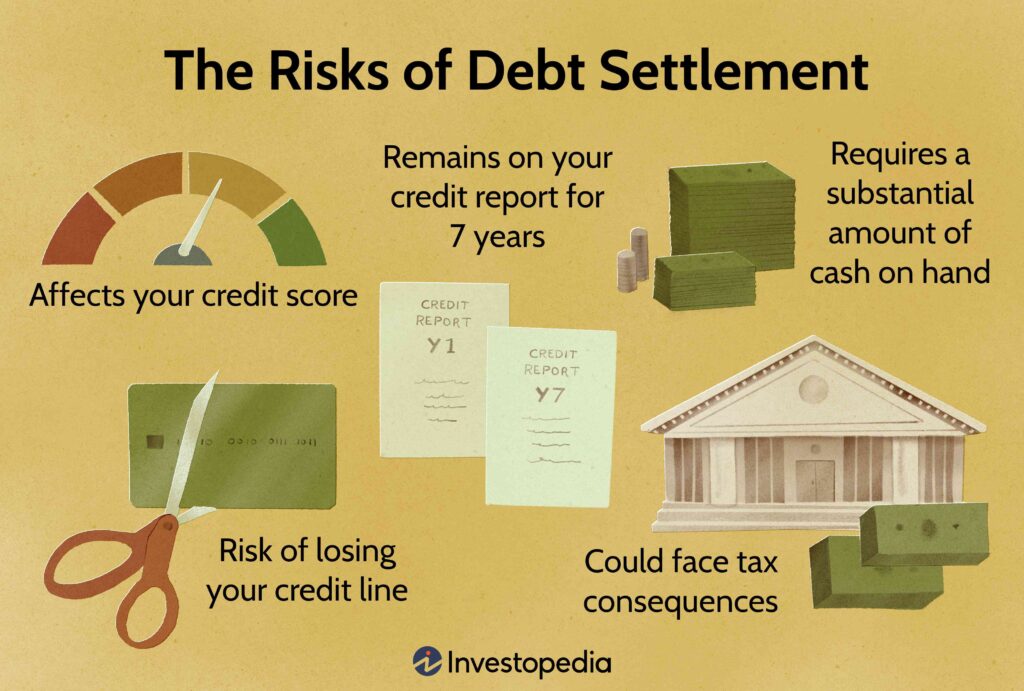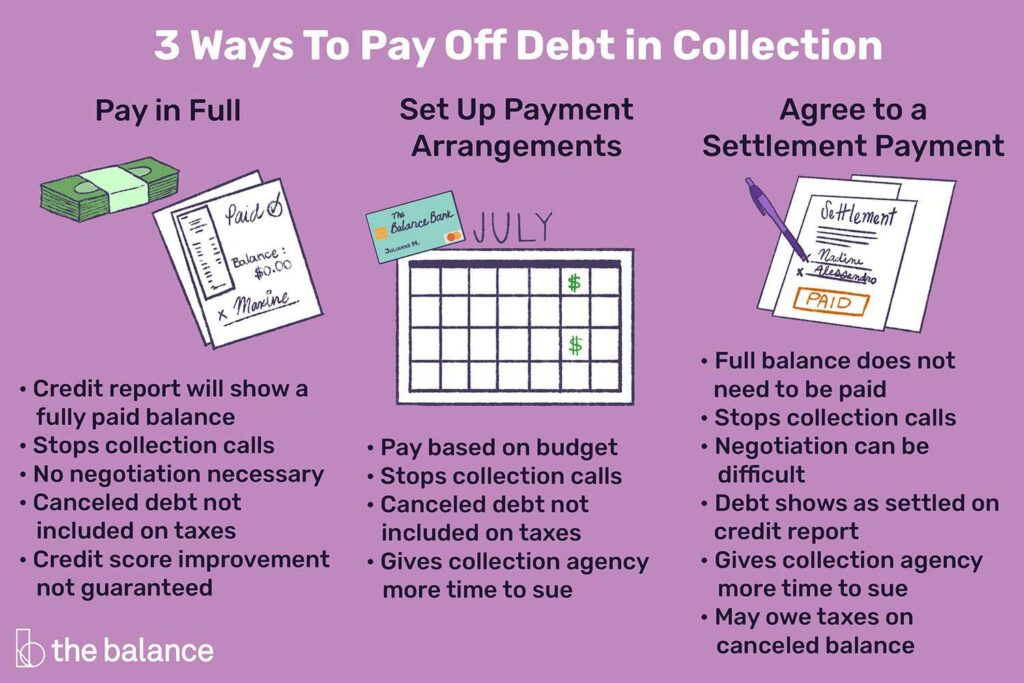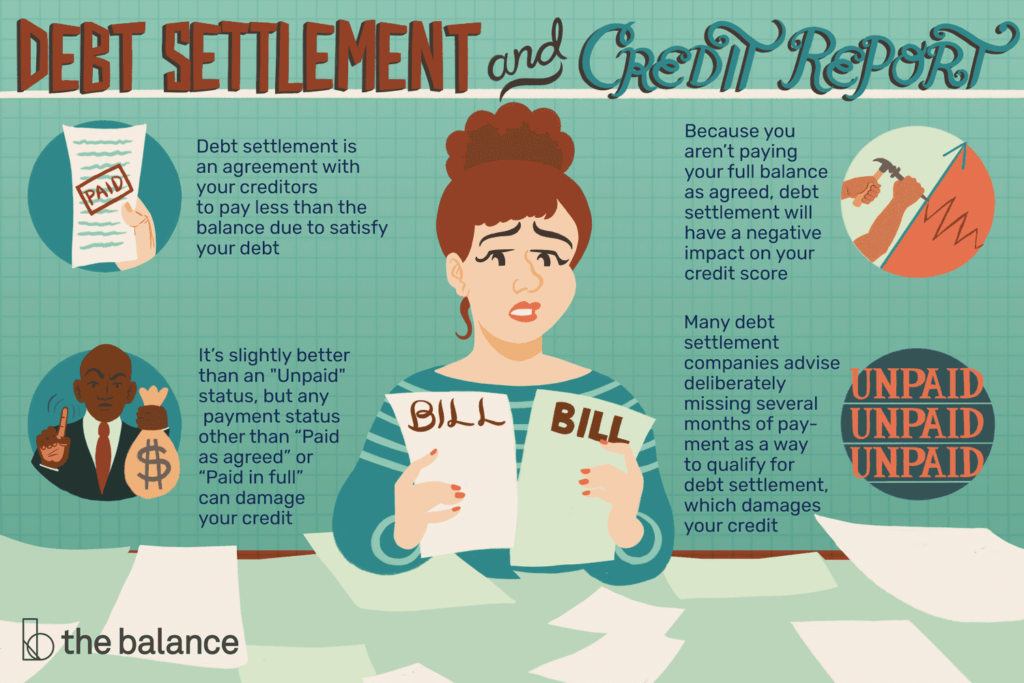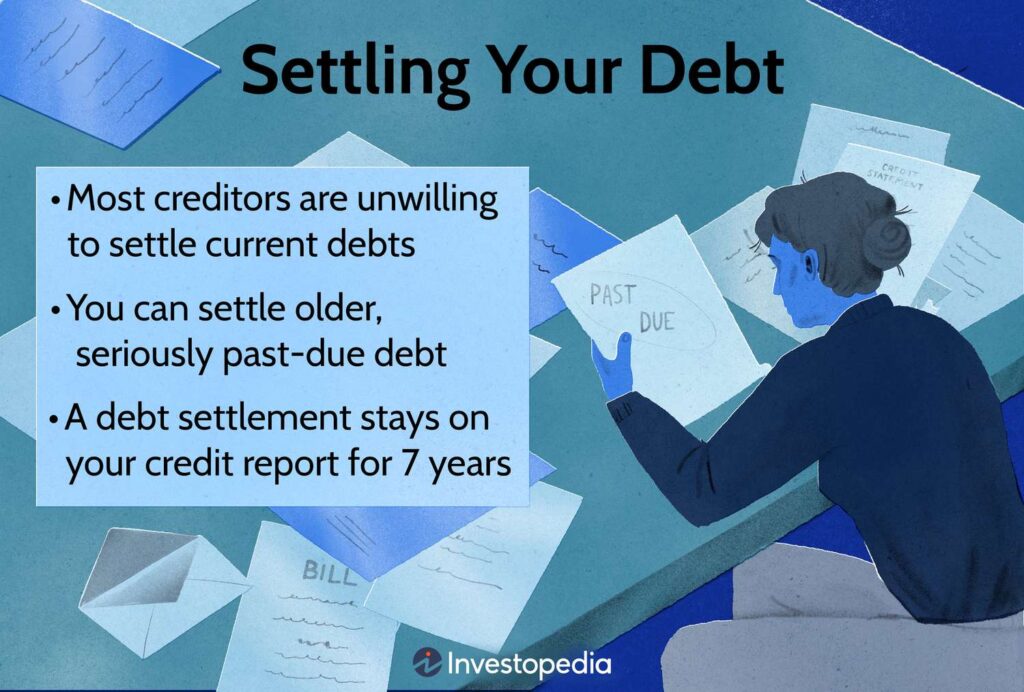In this article, we will explore various strategies and tips for negotiating with creditors to settle your debts and improve your credit. We will discuss the importance of communication, preparing a budget, and understanding your rights as a debtor. You will also learn about debt settlement options, including debt consolidation and debt management plans. By the end of this article, you will have a better understanding of how to negotiate effectively with creditors and take control of your financial future.
Understanding the Importance of Negotiating with Creditors
Dealing with debt can be overwhelming and stressful. It’s important to remember that you have options and that negotiating with creditors can be a valuable tool in managing your debts. In this article, we will explore the importance of negotiating with creditors, the impact it can have on your credit score, and the benefits it offers.
Why negotiating with creditors is crucial for debt settlement
Negotiating with creditors is a crucial step in the debt settlement process. It allows you to take control of your financial situation and work towards resolving your debts. By negotiating, you have the opportunity to reach an agreement with your creditors that allows you to pay off your debts at a reduced amount or with more favorable terms.
The impact of negotiating on your credit score
One of the concerns many people have with negotiating with creditors is how it will affect their credit score. While it’s true that negotiating with creditors may have a temporary negative impact on your credit score, the long-term benefits of settling your debts far outweigh the short-term impact. Once you have successfully negotiated a settlement and paid off your debts, you can begin to rebuild your credit.
Benefits of negotiating with creditors
Negotiating with creditors offers several benefits. First and foremost, it allows you to reduce the total amount of debt you owe. This can provide much-needed relief and help you regain control of your finances. Additionally, negotiating can often result in more favorable repayment terms, such as lower interest rates or waived fees. This can make it easier for you to make consistent payments and ultimately pay off your debts.
Preparing for Negotiations
Before you begin negotiating with your creditors, it’s important to be prepared. Taking the time to gather information about your debts, assess your financial situation, and create a realistic repayment plan will help you approach negotiations with confidence.
Gathering information about your debts
Start by gathering all the necessary information about your debts. This includes the names of your creditors, the outstanding balances, and any additional fees or charges. Having this information at hand will allow you to clearly understand the scope of your debts and communicate effectively with your creditors.
Assessing your financial situation
Next, take a close look at your financial situation. Determine your monthly income and expenses, as well as any other financial obligations you have. This will help you understand how much you can realistically afford to pay towards your debts and what type of settlement offer you can negotiate with your creditors.
Creating a realistic repayment plan
Based on your financial assessment, create a realistic repayment plan. Outline how much you can afford to pay each month and how long it will take you to pay off your debts. This plan will serve as a starting point for your negotiations and help you demonstrate to your creditors that you are committed to resolving your debts.

This image is property of www.investopedia.com.
Contacting Creditors
Once you have prepared for negotiations, it’s time to contact your creditors. This can be an intimidating step, but it’s important to remember that your creditors want to work with you to resolve your debts. Approaching the conversation with a positive attitude and effective communication strategies will increase your chances of reaching a favorable agreement.
Identifying the right person to negotiate with
Before reaching out to your creditors, it’s important to identify the right person to negotiate with. In many cases, this will be a customer service representative or a collections agent. Make sure to have their contact information ready so that you can easily reach out to them.
Effective communication strategies
When contacting your creditors, it’s important to clearly communicate your intentions and goals. Be honest about your financial situation and explain why you are seeking a settlement. It’s helpful to have a rehearsed script or outline of what you want to say to ensure that you cover all the necessary points. Keep in mind that remaining calm and polite during the conversation can go a long way in building a positive relationship with your creditors.
Scheduling a meeting or call
Once you have established contact with your creditors, schedule a meeting or call to discuss your debt settlement options. Be flexible with your availability and ensure that you have enough time to fully discuss your situation and negotiate a settlement. Remember to take notes during the conversation to keep track of any agreements or terms discussed.
Negotiating Techniques
Negotiating with creditors requires some strategic planning and persuasive techniques. Here are a few strategies to help you navigate the negotiation process effectively.
Developing a persuasive negotiation strategy
Before entering into negotiations, develop a persuasive strategy that highlights your commitment to repaying your debts and offers a reasonable settlement proposal. You may consider emphasizing your financial hardship, the benefits of settling the debt, and how it will allow you to make consistent payments.
Presenting your case effectively
When presenting your case to your creditors, be clear and concise. Clearly explain your financial situation, including any hardships or unique circumstances that have impacted your ability to make payments. Use facts and figures to support your claims, and be prepared to provide documentation if necessary.
Understanding common negotiation tactics
Creditors may employ various negotiation tactics to try and maximize their recovery. It’s important to understand these tactics and respond accordingly. Some common tactics include offering a lower settlement amount if you can make an immediate payment or threatening legal action. By being aware of these tactics, you can navigate the negotiation process with confidence and protect your interests.

This image is property of www.thebalancemoney.com.
Debt Settlement Offers
Once negotiations are underway, it’s important to determine a reasonable settlement amount and propose a repayment plan that works for both parties.
Determining a reasonable settlement amount
To determine a reasonable settlement amount, consider your financial situation and your creditor’s willingness to negotiate. Oftentimes, creditors are willing to accept a reduced payment in order to settle the debt. Start by offering a percentage of the total amount owed and be prepared to negotiate from there.
Proposing a repayment plan
In addition to the settlement amount, it’s important to propose a repayment plan that outlines how you will make payments towards the settled amount. This plan should be realistic and take into account your current financial situation. Be prepared to provide a timeline for repayment and an explanation of how you will make consistent payments.
Negotiating interest rates and fees
As part of the settlement process, you may also have the opportunity to negotiate the interest rates and fees associated with your debts. Lowering these rates can significantly reduce the total amount you owe and make it easier for you to pay off your debts. Be prepared to negotiate and provide reasons why reducing these rates would benefit both parties.
Handling Rejections and Counteroffers
During negotiations, it’s important to be prepared for rejections or counteroffers from your creditors. How you handle these situations can determine the success of the negotiation process.
Managing creditor rejections
If a creditor rejects your initial settlement offer, don’t get discouraged. Use this as an opportunity to gather more information about their concerns and consider adjusting your proposal. Reiterate your commitment to repaying your debts and explore alternative options that may be acceptable to both parties.
Analyzing counteroffers
If your creditor presents a counteroffer, carefully analyze it to determine if it aligns with your financial goals and capabilities. Consider factors such as the total amount to be repaid, the length of the repayment period, and any changes to interest rates or fees. If the counteroffer is reasonable and manageable, consider accepting it or proposing further adjustments.
Making alternative proposals
If negotiations reach a stalemate, be prepared to make alternative proposals that meet the needs of both parties. This could include offering a higher settlement amount in exchange for more favorable repayment terms or adjusting the repayment timeline based on your financial capabilities. The key is to remain flexible and open to finding a solution that works for everyone involved.

This image is property of www.thebalancemoney.com.
Securing a Written Agreement
Once you have successfully negotiated a settlement with your creditors, it is crucial to formalize the agreement in writing. This ensures that all parties are clear on the terms and reduces the risk of any misunderstandings or disputes in the future.
Importance of formalizing the agreement
Formalizing the agreement provides legal protection for both parties and ensures that there is a clear understanding of the terms. It also allows you to hold your creditors accountable for honoring the agreed-upon settlement terms.
Key elements of a settlement agreement
A settlement agreement should include key elements such as the total amount of the settlement, the repayment terms, any changes to interest rates or fees, and a timeline for completing the repayment. It should also specify the consequences for defaulting on the agreement and any provisions for addressing unforeseen circumstances.
Reviewing and signing the contract
Before signing the settlement agreement, carefully review all the terms outlined in the contract. If you have any questions or concerns, consult with a legal professional or financial advisor for guidance. Once you are satisfied with the terms, sign the agreement and keep a copy for your records.
Following Through on the Settlement
Securing a settlement agreement is only the first step. It’s important to follow through on the agreement and make consistent payments to ensure that you successfully resolve your debts.
Making consistent payments
Once you have agreed upon a repayment plan, make it a priority to make consistent payments on time. This will demonstrate your commitment to fulfilling your obligations and help you rebuild your credit over time. Consider setting up automatic payments or reminders to ensure that you don’t miss any payments.
Tracking progress and updating credit reports
As you make payments towards your settled debts, keep track of your progress and regularly review your credit reports. Make sure that the settled accounts are being reported accurately and reflect the negotiated terms. If you notice any discrepancies, contact the creditor or credit reporting agency to have them corrected.
Dealing with unexpected financial challenges
During the repayment period, unexpected financial challenges may arise that make it difficult for you to meet your payment obligations. If this happens, it’s important to communicate with your creditors and explore options for temporary relief or adjustments to the repayment plan. Open and honest communication can help you navigate these challenges and prevent any negative impact on your credit.

This image is property of www.investopedia.com.
Credit Score Improvement Strategies
Improving your credit score is a vital part of the debt settlement process. Here are some strategies to help you rebuild your credit after settling your debts.
Monitoring your credit score
Regularly monitoring your credit score is important to track your progress and ensure that it is improving over time. There are several free or low-cost credit monitoring services available that can provide you with updates on your credit score and any changes to your credit report.
Implementing responsible financial habits
To improve your credit score, it’s important to implement responsible financial habits. This includes making all payments on time, keeping your credit utilization low, and avoiding new debt whenever possible. These habits will demonstrate to lenders that you are a responsible borrower and can be trusted with credit.
Seeking professional assistance if needed
If you are struggling to negotiate with creditors or improve your credit score on your own, consider seeking professional assistance. Credit counseling agencies and debt settlement companies can provide guidance and support throughout the process. Be sure to thoroughly research and choose reputable organizations that have a track record of successfully helping individuals in similar situations.
Conclusion
Negotiating with creditors to settle your debts and improve your credit is a proactive and empowering step towards financial stability. By understanding the importance of negotiation and preparing effectively, you can take control of your credit and future. Remember to stay positive, communicate effectively, and remain committed to your goals. With perseverance and determination, you can successfully negotiate with creditors, settle your debts, and achieve the financial freedom you deserve.

This image is property of www.forbes.com.
